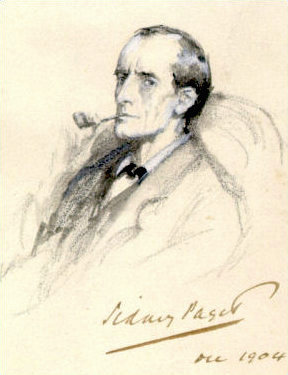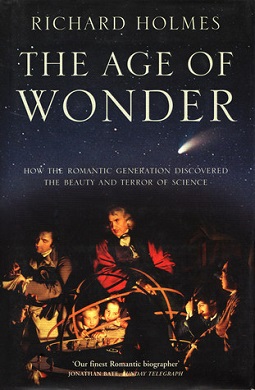
Sherlock Holmes is a fictional detective created by British author Arthur Conan Doyle. Referring to himself as a "consulting detective" in his stories, Holmes is known for his proficiency with observation, deduction, forensic science and logical reasoning that borders on the fantastic, which he employs when investigating cases for a wide variety of clients, including Scotland Yard.
Holism is the interdisciplinary idea that systems possess properties as wholes apart from the properties of their component parts. The aphorism "The whole is greater than the sum of its parts", typically attributed to Aristotle, is often given as a summary of this proposal. The concept of holism can inform the methodology for a broad array of scientific fields and lifestyle practices. When applications of holism are said to reveal properties of a whole system beyond those of its parts, these qualities are referred to as emergent properties of that system. Holism in all contexts is often placed in opposition to reductionism, a dominant notion in the philosophy of science that systems containing parts contain no unique properties beyond those parts. Proponents of holism consider the search for emergent properties within systems to be demonstrative of their perspective.

Ronald Arbuthnott Knox was an English Catholic priest, theologian, author, and radio broadcaster. Educated at Eton and Balliol College, Oxford, where he earned a high reputation as a classicist, Knox was ordained as a priest of the Church of England in 1912. He was a fellow and chaplain of Trinity College, Oxford until he resigned from those positions following his conversion to Catholicism in 1917. Knox became a Catholic priest in 1918, continuing in that capacity his scholarly and literary work.

Michael Brant Shermer is an American science writer, historian of science, executive director of The Skeptics Society, and founding publisher of Skeptic magazine, a publication focused on investigating pseudoscientific and supernatural claims. The author of over a dozen books, Shermer is known for engaging in debates on pseudoscience and religion in which he emphasizes scientific skepticism.

Howard Rheingold is an American critic, writer, and teacher, known for his specialties on the cultural, social and political implications of modern communication media such as the Internet, mobile telephony and virtual communities.

Nicolas Camille Flammarion FRAS was a French astronomer and author. He was a prolific author of more than fifty titles, including popular science works about astronomy, several notable early science fiction novels, and works on psychical research and related topics. He also published the magazine L'Astronomie, starting in 1882. He maintained a private observatory at Juvisy-sur-Orge, France.

Ernest Shurtleff Holmes was an American New Thought writer, teacher, and leader. He was the founder of a spiritual movement known as Religious Science, part of the greater New Thought movement, whose spiritual philosophy is known as "The Science of Mind." He was the author of The Science of Mind and numerous other metaphysical books, and the founder of Science of Mind magazine, in continuous publication since 1927. His books remain in print, and the principles he taught as "Science of Mind" have inspired and influenced many generations of metaphysical students and teachers. Holmes had previously studied another New Thought teaching, Divine Science, and was an ordained Divine Science Minister. His influence beyond New Thought can be seen in the self-help movement.

The Religious Science movement, or Science of Mind, was established in 1926 by Ernest Holmes and is a spiritual, philosophical and metaphysical religious movement within the New Thought movement. In general, the term "Science of Mind" applies to the teachings, while the term "Religious Science" applies to the organizations. However, adherents often use the terms interchangeably.

The New Thought movement is a new religious movement that coalesced in the United States in the early 19th century. New Thought was seen by its adherents as succeeding "ancient thought", accumulated wisdom and philosophy from a variety of origins, such as Ancient Greek, Roman, Egyptian, Chinese, Taoist, Hindu, and Buddhist cultures and their related belief systems, primarily regarding the interaction among thought, belief, consciousness in the human mind, and the effects of these within and beyond the human mind. Though no direct line of transmission is traceable, many adherents to New Thought in the 19th and 20th centuries claimed to be direct descendants of those systems.

Dianetics: The Modern Science of Mental Health, sometimes abbreviated as DMSMH, is a book by L. Ron Hubbard describing a pseudoscientific set of ideas, Dianetics, that would later become part of Scientology. Hubbard claimed to have developed it from a combination of personal experience, basic principles of Eastern philosophy and the work of Sigmund Freud. The book is considered part of Scientology's canon. It is colloquially referred to by Scientologists as Book One. The book launched the movement, which Hubbard later characterised as a religion, in 1950. As of 2013, the Scientology organization's publishing arm, New Era Publications, sells the book in English and in 50 other languages.
Uell Stanley Andersen was an American football player and self-help and short story author during the 1950s and 1960s. He is best known for his book, Three Magic Words.

Christopher Cole Mooney is an American journalist and author of four books including The Republican War on Science (2005). Mooney's writing focuses on subjects such as climate change denialism and creationism in public schools, and he has been described as "one of the few journalists in the country who specialize in the now dangerous intersection of science and politics." In 2020 he was awarded a Pulitzer Prize for a series of articles on global warming published in The Washington Post.

Quantum mysticism, sometimes referred to pejoratively as quantum quackery or quantum woo, is a set of metaphysical beliefs and associated practices that seek to relate spirituality or mystical worldviews to the ideas of quantum mechanics and its interpretations. Quantum mysticism is considered pseudoscience and quackery by quantum mechanics experts.
The law of attraction is the New Thought spiritual belief that positive or negative thoughts bring positive or negative experiences into a person's life. The belief is based on the idea that people and their thoughts are made from "pure energy" and that like energy can attract like energy, thereby allowing people to improve their health, wealth, or personal relationships. There is no empirical scientific evidence supporting the law of attraction, and it is widely considered to be pseudoscience or religion couched in scientific language. This belief has alternative names that have varied in popularity over time, including manifestation.

Christian Daa Larson (1874–1954) was an American New Thought leader and teacher, as well as a prolific author of metaphysical and New Thought books. He was credited by Horatio Dresser as being a founder in the New Thought movement. Many of Larson's books remain in print today, more than 100 years after they were first published, and his writings influenced notable New Thought authors and leaders, including Religious Science founder Ernest Holmes.
Corey Robin is an American political theorist, journalist and professor of political science at Brooklyn College and the Graduate Center of the City University of New York. He has written books on the role of fear in political life, tracing its presence from Aristotle through the war on terror, and on the nature of conservatism in the modern world, from Edmund Burke to Donald Trump. Most recently, he is the author of a study of Justice Clarence Thomas that argues that the mainspring of Thomas's jurisprudence is a combination of black nationalism and black conservatism.

Sir Arthur Ignatius Conan Doyle was a British writer and physician. He created the character Sherlock Holmes in 1887 for A Study in Scarlet, the first of four novels and fifty-six short stories about Holmes and Dr. Watson. The Sherlock Holmes stories are milestones in the field of crime fiction.

The Age of Wonder: How the Romantic Generation Discovered the Beauty and Terror of Science is a 2008 popular biography book about the history of science written by Richard Holmes. In it, the author describes the scientific discoveries of the polymaths of the late eighteenth century and how this period formed the basis for modern scientific discoveries. Holmes, a literary biographer, also looks at the influence of science on the arts in the Romantic era. The book won the 2009 Royal Society Prize for Science Books, the 2009 National Book Critics Circle Award for General Nonfiction, and the 2010 National Academies Communication Award.

The Centers for Spiritual Living (CSL) is a spiritual philosophy promoting Religious Science that was founded by Ernest Holmes in 1926, with the publication of his book The Science of Mind. Before 2011, it was two organizations known as United Centers for Spiritual Living and International Centers for Spiritual Living.

Fenwicke Lindsay Holmes (1883–1973) was an American author, former Congregational minister, and Religious Science leader. The brother of Ernest Holmes, Fenwicke is widely recognized for being an important factor in the establishment of Religious Science and the founding of the United Centers for Spiritual Living. Fenwicke is recognized as an important figure in the development of the New Thought movement in Japan in particular Seicho-no-Ie.













